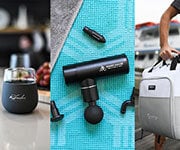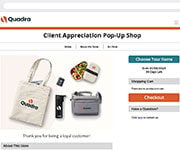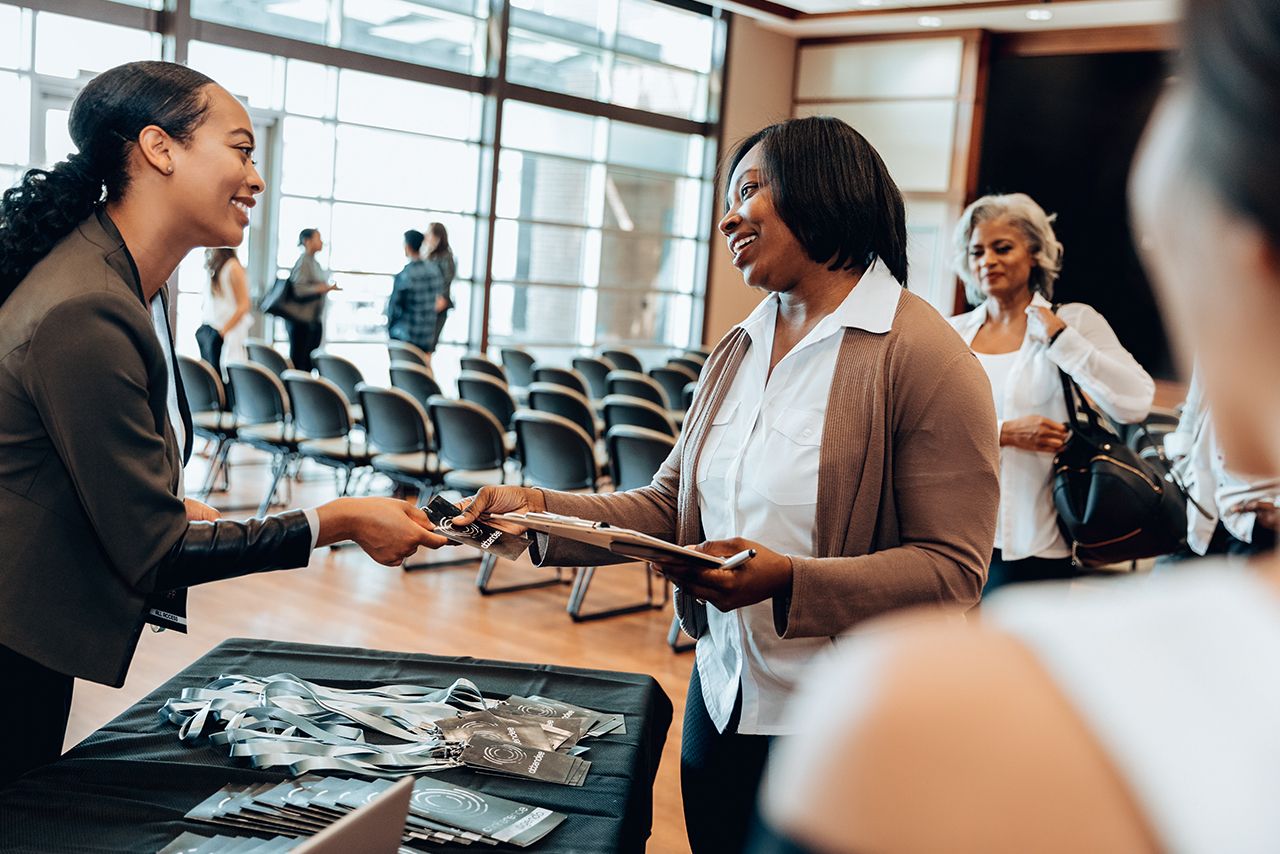The Role of Trade Show Marketing in 2024
Done right, trade shows are an invaluable marketing strategy that can deliver significant returns on your business’s investment. Even as digital marketing technologies continue to proliferate, there’s simply no substitute for the experience your business can create at a live trade show.
But trade shows aren’t just a brand-building exercise: they’re an opportunity to generate new leads, grow relationships with existing customers, and close major sales opportunities.
When a comprehensive strategy meets flawless execution, trade shows can be game-changing, elevating your business’s standing in the industry and laying the foundation for a reliable pipeline of new business.
7 Metrics to Measure Trade Show Effectiveness
By tracking the seven metrics below, you’ll be able to develop a quantitative and a qualitative understanding of your trade show ROI, while also identifying improvement opportunities for your next event.
1. Leads Generated
Perhaps the easiest way to gauge trade show success is to determine the number of leads your team generated through its attendance.
Make sure that you qualify your leads. Just because someone came to your booth and left their contact information, it doesn’t mean they’re a qualified buyer. They may not have decision-making authority or align with your buyer personas.
Take things a step further by evaluating your sales prospects to determine the quality of leads you received from the event. You can do so by asking the leads you interact with at trade shows to fill out a short survey asking some common lead-scoring questions, such as:
- How many employees does your company have?
- What estimated budget do you have allocated for a solution like ours?
- What kind of timeline would you be working with to implement a solution like ours?
- What is the approximate annual revenue of your company?
2. Cost Per Lead
One way to measure the effectiveness of an event is to factor in the cost of attending the event compared to the number of leads your business generated. You can do so using the following formula:
Cost Per Lead Formula:
Total Cost of Participation (including Booth Cost, Promotional Materials, Travel Expenses, etc.) ÷ Leads Generated = Cost Per Lead
For example, let’s say an event costs $10,000 to attend and generates 20 leads. Your cost per lead would be $10,000 ÷ 20, which is $500.
Smaller trade shows might produce fewer leads than large trade shows, but if they do so at a significantly lower cost per lead, they might still be worth your team’s time. This additional layer of analysis is key to developing insightful trade show metrics.
3. Sales Conversion Rate
Leads are great, but they don’t pay the bills. To understand trade show ROI, you need to identify the rate at which leads generated at a trade show convert into paying customers. To figure that out, you’ll need to calculate your sales conversion rate. This is a simple calculation. Just take the number of closed sales from a trade show and divide this number by the number of leads your team collected.
Sales Conversion Rate Formula:
Number of Closed Sales ÷ Number of Leads Collected = Conversion Rate
So, if you closed 10 new clients from a trade show but had 50 leads, your sales conversion rate would be 20%.
This KPI helps you understand how well-matched the audience at any given trade show was to your business. For trade show marketing to be effective, it’s vital you’re present at the same events as buyers for your products and services. Your sales conversion rate is the best way to measure this.
4. Booth Traffic
You’ll never be the only one at a trade show. In fact, it’s likely all of your direct competitors will be in attendance too. One thing you’ll all have in common? A desire to attract people to your booth.
Monitoring the number of visitors that attend your booth quantifies the effectiveness of the strategies you put in place to attract people to your booth. There are all kinds of tactics you can deploy here, from providing trade show giveaways to hosting interactive exhibits that pique attendees’ curiosity. Measuring your booth traffic from event to event helps you refine these strategies over time.
5. Social Media Engagement
A trade show represents a valuable opportunity to introduce your brand to new audiences and build connections that last long after the event is over. Measuring the level of social media engagement your brand attracted during a trade show event is one way of determining whether your messages resonated with attendees.
This is particularly true if you ran geofenced mobile ads during an event, targeting people in the vicinity of the trade show with messages that encouraged them to visit your booth. Pay attention to ad performance metrics, including impressions, clicks, and click-through-rate to determine if these ads were a success.
If you see a boost in followers, likes, shares, or mentions after an event, it’s a sign that attendees found your presence compelling and want to keep track of your activity. When measuring this engagement, don’t just focus on your official company social media profiles. You should also include any new connections that your team made on their personal profiles.
6. Brand Awareness
Attending a trade show is a proven way to expand the reach of your brand, both with interested buyers in your industry and with the trade media. That’s particularly true if you’re a new company or an established company entering a new industry for the first time.
Consider running a simple survey or poll determining brand recognition, recall, and perception before and after the trade show. Send a follow-up email after the event with a short survey, or alternatively, place a tablet at the exit to your booth and ask visitors a few simple brand awareness questions as they leave. Here are some questions to consider asking:
- Why did you stop by our booth today?
- Before visiting our booth today, were you familiar with our brand?
- How has visiting our booth today changed your impression of our brand?
- What specific elements of our booth and/or presentations impressed you the most?
- Did you encounter our brand on social media before or during this event?
7. Interactions with Existing Customers
Trade shows aren’t exclusively a place to attract new customers; they also present your business with a platform to strengthen and renew relationships with existing and former customers.
Experts estimate that acquiring new customers is five to six times more expensive than rekindling a relationship with a former customer. Spending time with former customers, as well as existing customers, helps shore up your business’s revenue base while giving your team a platform to understand how they can grow their relationship with existing clients.
Don’t just focus on the new leads your team generates. Keep track of the number of interactions it has with existing customers too. Make sure that any insights gained from these conversations are added to your customer relationship management (CRM) software so that your team can follow up after the event has concluded.
Start Planning Your Trade Show Marketing Strategy
It’s undeniable that trade shows remain an extremely influential marketing strategy for B2B companies.
When planned and executed well, a trade show offers brands an incredible platform to grow their reputation and build relationships with prospective customers. Establishing clear metrics to gauge trade show success ensures your team has the insight it needs to continuously refine and improve its strategy.
Get in touch if you need assistance planning your next event. Our experts will work closely with your team to design, execute, and measure a trade show marketing strategy that will help you meet and exceed your event goals.














